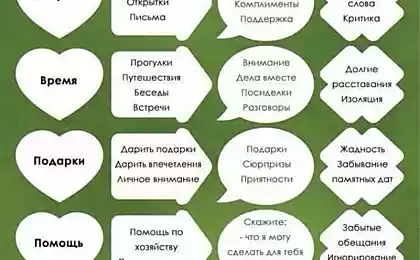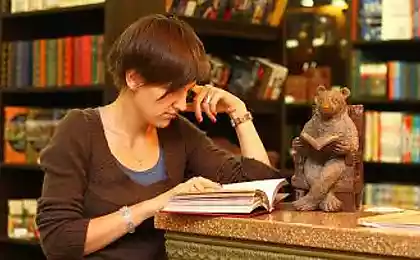181
What mistakes in words is easy to recognize a resident of the province
The Great and Mighty is one of the six official languages of the United Nations. According to statistics, Russian is spoken by about 260 million people worldwide. But not all Russians, for whom this language is native, speak it correctly. Typical grammatical errors They occur in both written and oral speech. There is no need to go far: just look in the comments under any post on Facebook.

It just so happens that today people spend more time sitting on social networks than reading good literature. And this applies to the younger generation and more mature users of the network. Editorial "Site" I am reminded of the most common mistakes in words.
Typical grammatical errors are common. It is said that some mispronounced words can easily give a provincial in a person. But anyone can make a mistake. And we're here to remind you once again how to write and pronounce the words we most often make mistakes in. Repetition is the mother of learning!

The most insidious words
Typical grammatical errors: Other cases

That's all the wisdom for today. If you remember a couple of typical grammar mistakes, boldly share them in the comments to this article. Let's perfect our speech together!

It just so happens that today people spend more time sitting on social networks than reading good literature. And this applies to the younger generation and more mature users of the network. Editorial "Site" I am reminded of the most common mistakes in words.
Typical grammatical errors are common. It is said that some mispronounced words can easily give a provincial in a person. But anyone can make a mistake. And we're here to remind you once again how to write and pronounce the words we most often make mistakes in. Repetition is the mother of learning!

The most insidious words
- Let's start with the classics. "Dress" or "Dress"? Everything is very simple here, but there is still confusion in oral speech. We dress someone in something, and we put something on someone. Remember this test phrase: Dress Hope, put on clothes.
- People often make a mistake in I'm sorry. And they write it with an "e." In this case, we use the rule of the test word. You need to choose a single root word in which the letter "and" will be under stress. And it is! It's the word "guilty."

- That's right. "Come" or "Come"? I suggest that we look at history. It turned out that until 1956, it was allowed to use 3 variants of this word at once: come, come and come. And now the norm is only one word – “Come”. But when the verb is conjugated, the letter "y" disappears: I will come, you will come, he will come, and so on.
- Don't say. ichnyIf you don't want your interlocutor to be cut off by hearing. There is only one way of spelling and pronouncing this personal pronoun - "them."
- "Place" or "Place"? Unfortunately, in conversation, people often use the second word. But it's a mistake. The word "to lay" does not exist in principle, it is commonplace. It is used in literary speech only with the prefix: put, lay, shift and so on. In the same way, the word “storage” cannot be used with a prefix. But for some, the “polite” sometimes slips into conversation. Don't say that!
Typical grammatical errors: Other cases
- "Wash" or "vacuum"? Formally true is the verb version, but this word sounds, to put it mildly, not very. Therefore, it is better to use it only in conversation.

In general, there are verbs with a flawed (or incomplete) paradigm in Russian. These words may not have any form. A striking example is the verb “win”, which has no first-person singular form. Instead of “I will win,” we have to say “I will win.” So it’s no surprise that sometimes we don’t know which word to use. It might just not exist. - "Saussies" or "sausies"? That's ridiculous to say, to be honest. No doubt there is no soft sign in this word. The wrong option is used only in a humorous form. But in public, we advise you to speak correctly.
- One of my worst mistakes is the misuse of prepositions in front of geographical names. If a person says they have come “from Moscow” or “from Kiev”He's got to be cunning. That’s what they say in small towns or villages. The correct option: from Moscow, from Kiev and so on.

- "Corridor", "CoLidor" or "CoRridor"? The only correct option is the corridor. There's no double "r" in the word. Just like the word “ice cream” doesn’t have a double letter “n”.
- The word "go" has no form of imperative inclination. So options. "go" or "go" It's considered a mistake. Although we still use them in conversation, it is not worth it. It is better to say “go” or “go”.

That's all the wisdom for today. If you remember a couple of typical grammar mistakes, boldly share them in the comments to this article. Let's perfect our speech together!
Refuse to cook river fish only those who do not know how to correctly select her spices, show the scheme
Learning to marinate eggs with spices to make the perfect holiday snack a week before Easter


























